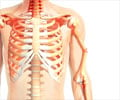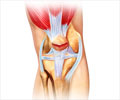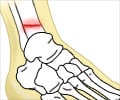
‘Cognitive decline has been associated with increased fracture risk in women over five years compared to men. This helps in refining practice guidelines for cognition and bone health among the older population and plan appropriate treatment.’
Tweet it Now
Osteoporosis (bone loss) affects 200 million people globally. Whereas, 35 million are affected by dementia – a neurodegenerative disease, characterized by gradual memory loss and behavioural disturbances. The figure is expected to double over the next two decades with the rise in life expectancy. Both disorders, apart from increasing the disability and loss of independence, also pose a high rate of mortality.
Risk of Cognitive Decline and Bone Loss
The 16 years study included data from the Canadian Multicentre Osteoporosis Study (CaMos). This involved 1741 women and 620 men (with no cognitive decline at enrolment) above the age of 65 years to find out the link between cognitive decline and a faster rate of bone loss.
It was found that cognitive decline over the first five years related to a 1.7-fold increase in the fracture risk among women in the subsequent 10 years. However the association was weaker in men.
Advertisement
"Our study has revealed a link between the two in women, which suggests that cognition should be monitored together with bone health, as a decline in one could mean a decline in the other. These findings may help refine best practice guidelines of how cognition and bone health are monitored in older age, to ensure appropriate treatment can be more effectively administered," says Professor Jacqueline Center.
Advertisement














